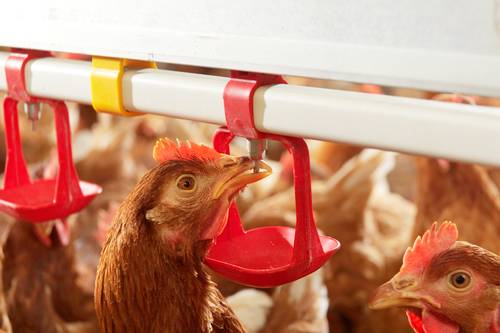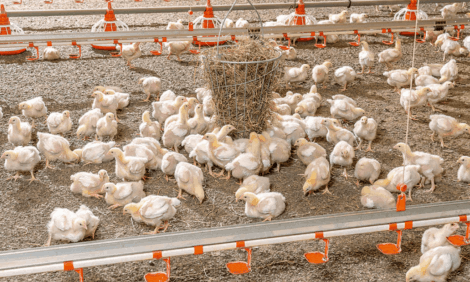



Antibiotic Free Production and Coccidiosis Control
A series of press releases by prominent US restaurant chains and wholesalers demanding poultry raised ‘without antibiotics that are important to humans’ (number one restaurant chain, McDonald's) or ’no antibiotics ever’ (number three chain, Subway) has caused a rapid paradigm shift in US broiler production toward the reduction or elimination of antibiotic use, writes Linnea Newman, DVM.Poultry labelled raised without antibiotics that are important to humans (RWA) allows the use of ionophores to control coccidiosis.
Ionophores, such as monensin, narasin and lasalocid, are defined as antibiotics by the USDA, while chemical anticoccidials, such as nicarbazin, robenidine, clopidol and diclazuril are not antibiotics and may be used in no antibiotics ever (NAE) labelled poultry.
Coccidiosis vaccines may be used to control coccidiosis for either label. Coccidiosis vaccination with Fortegra® (Coccivac®B-52) can be used every year in rotation with the chemical anticoccidials to seed farms with sensitive vaccine-origin coccidiosis strains.
The effect of renewing sensitivity will be temporary, so producers must rotate to vaccination for 3-4 flock cycles out of every year.
Coccidiosis vaccination can also be used exclusively on a year-round basis as the fundamental coccidiosis control programme. Some integrators are also experimenting with hybrid shuttle programmes that use coccidiosis vaccination to start every flock, followed by a shuttle to an in-feed anticoccidial (either ionophore or chemical) after partial or full immunity has developed.
Necrotic enteritis and dysbacteriosis are caused by imbalance of the intestinal microflora, and usually controlled by antibiotics. Without antibiotics, extra care must be taken to avoid conditions that could stimulate an imbalance of microflora.
A simple concept to understand is that microflora imbalance is caused by too many nutrients (particularly protein) reaching the lower intestine during the first three weeks of life.
Highly digestible feed ingredients should be used during the starter phase to avoid undigested nutrients reaching the caeca. Spending the money for a highly digestible starter feed may provide a strong return on investment in an antibiotic-free production environment.
Steady-state eating is important to maintain because excessive consumption speeds feed through the intestinal tract, leaving too many nutrients to reach the lower gut.
Management conditions that cause over-eating in response to a feed outage, a temperature change, a lighting change or a feed form or formulation change can initiate enteritis. Enzymes and feed additives that enhance feed digestibility are helpful.

Where available, a complete healthy microflora culture (such as Aviguard®) is an ideal probiotic to seed the intestine with a complete, balanced microflora. Probiotics with selected, defined beneficial microflora may be helpful.
Acidification of water and encapsulated acids in the feed will provide the appropriate environmental conditions within the gut to maintain a healthy microflora. Fibre to encourage the production of butyric acid or encapsulated butyric acid itself as well as mannanoligosaccharide (MOS) products will assist in repair and reduce dehydration of intestinal villi damaged by coccidia or enteritis.
Management of coccidiosis vaccination to achieve consistent timing and magnitude of vaccine cycling and management of chemical anticoccidial programmes to avoid escapes or leakage at the end of the starter feed period are critical in antibiotic free production systems.
Avoid multiple insults that fall within the critical window for enteritis (14-22 days of age), such as feed changes or movement from partial to full house. When these occur simultaneously with coccidiosis activity in the intestine, either from vaccination or from loss of anticoccidial sensitivity, the conditions are right for development of enteritis.












